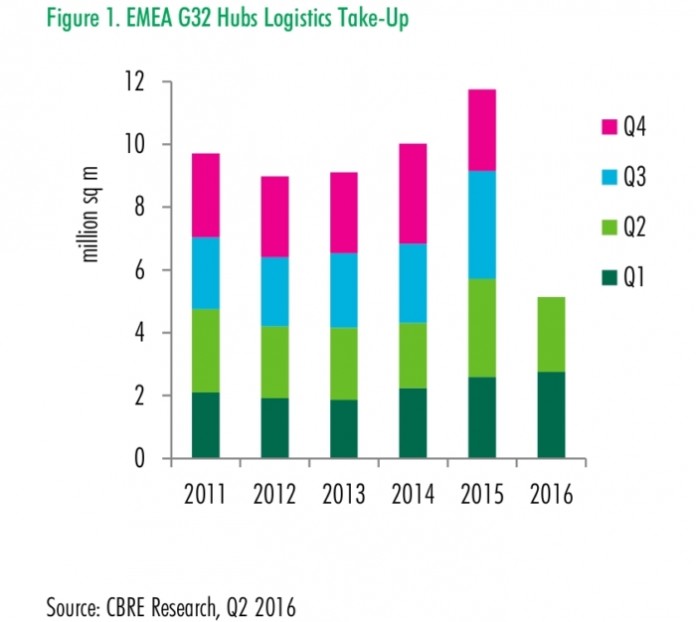The European industrial and logistics investment market experienced a record breaking amount of investment volumes in H1 2016, despite a slower Q2, according to the latest CBRE Industrial and Logistics MarketView. Lower than average activity in the UK amidst Brexit uncertainty meant logistics assets only made up 45 per cent of total turnover, instead of the usual 60 per cent, but the first half performance highlights the importance of this asset class .
According to the research, occupier demand held up well in H1 2016, despite a slowdown in activity during Q2, which in some markets, including the Netherlands, was quite pronounced. Other core markets performed strongly including Germany, Italy, the Czech Republic and the UK. Net absorption throughout Europe has remained positive, pushing vacancy rates down to a weighted 5.5%. In addition, many of these leading areas lack availability for modern warehouses or city depots, which has resulted in strong development activity and an increased share of speculative development in the areas, giving a further boost to said markets.
Prime yields declined further in Q2, led primarily by Germany, France and Spain. Ahead of the Brexit vote, prime yields appeared to bottom out entirely, but a renewed downward pressure on interest rates is likely to reverse this effect. Nonetheless, investors are growing to be more risk averse, which is beginning to impact secondary values.
Machiel Wolters, Head of Research, Industrial and Logistics, EMEA, commented:
“While this quarter of the year was calmer, the industrial and logistics sector witnessed a record breaking amount of investment transactions in the first half of 2016. We continue to see a rise in development as a result of this demand, and new construction is providing a welcomed replenishment for Europe’s tight logistics market. Anticipation of the EU referendum stemmed market uncertainty in Q2 and impacted a wide variety of sectors. However now that the dust has settled, we anticipate the sector will gain further traction across investors throughout the European markets.“



















